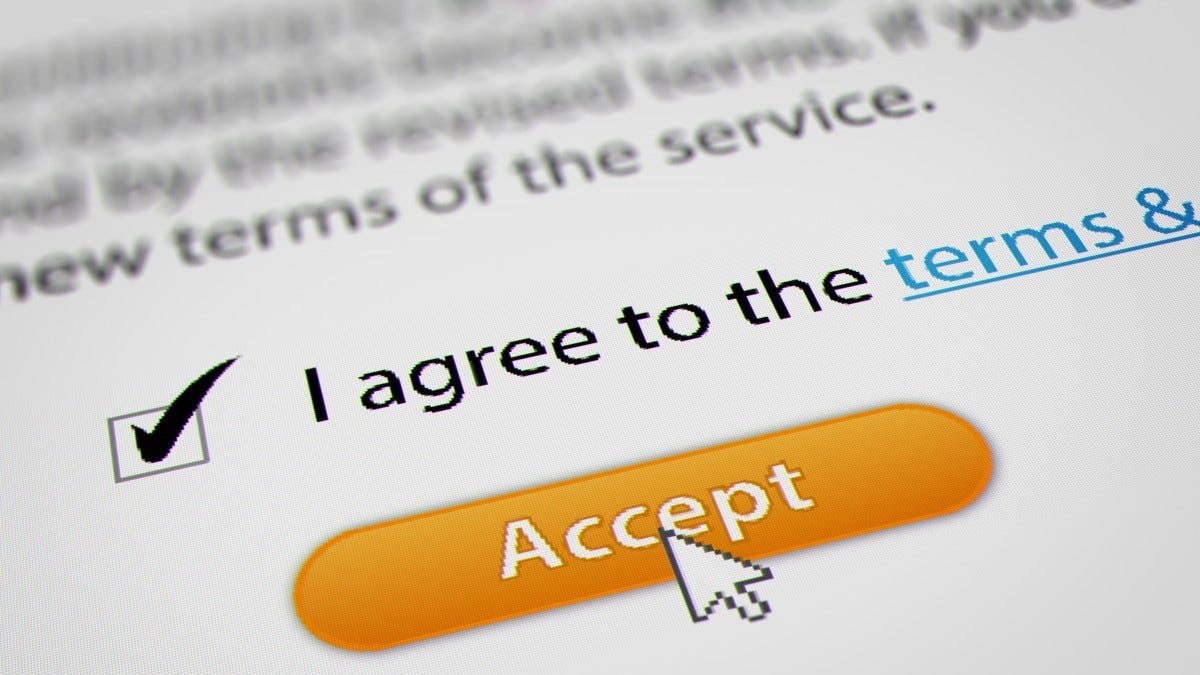The Invisible Time Bombs
Avoid These Overlooked Risks When Signing Up for New Platforms and SaaS Products
The recent Unity price change announcement has captured the attention of many developers. However, amidst this spotlight, there are numerous other overlooked risks that developers should be mindful of when signing up for new platforms and SaaS products. These risks can have a significant impact on a company's growth and success, so it is important to carefully read and understand the terms of service before signing up.
It is shocking to me how often I see executives and employees at even large companies simply click the "Accept" button on terms and services without having their legal department review them or take the time to read and understand the implications. This is especially concerning. People often assume that they will have "full control" since they are the customers and paying big money for the service. While this is true to a certain degree most of the time, a simple click could cause significant damage or slow down to the company depending on how things evolve over time.
Here is a list of common things that people should pay attention to when signing up for a service:
Exclusivity
Exclusivity language is common in the terms and services of many game publishing platforms. The platform may require exclusivity for a single game, all current and future games under the parent company. Some platforms may extend this exclusivity after the relationship has ended, to prevent you from moving to a competitor. Exclusivity language is less common in SaaS products or Ad Networks' terms and services at sign-up.
Ownership of Data and Derivative Works
In a publishing partnership, the platform may use your existing content to create promotional material for your games, including marketing material, ads, characters, levels, dungeons, etc. Developers should make sure they own those derivative works as well regardless of who pays for them, because you don't want to lose a popular character one day when you are no longer working with the current publisher, even if that character is 100% your intellectual property. The same is true for user data level ownership, but this is much harder to negotiate for smaller developers. For SaaS products, developers should ensure that there is sufficient language to help them transfer their data to another service when possible, instead of being locked into an unreadable proprietary data format.
Non-Compete
It's not uncommon to see platforms or publishers entering the arena to compete with their partners in the same genre and products. Amazon has created its own label - Amazon Basic, to compete with its suppliers for the best-selling products. Gaming publishers or Ad Networks may develop their own games or bring in partners with games that are similar to your games. While some people would get upset when they found out such news, I've found that developers who embedded such expectations on day one and negotiated terms with flexibility for them to scale back or scale up their partnership stand in a much better position when this happens. It's okay to have competition in a healthy and transparent manner. If not, you should also be able to walk away without much pain.
We May Modify These Terms at Any Time and Without Notice
You may see this sentence often, but companies rarely go so extreme with this click-wrap terms practice. While some companies give you a pop-up window to read before you "Accept" with their most recent changes—often at the worst timing, like American Express's mobile app, which won't let you do anything unless you click "Accept" after opening the app—some SaaS software services blend their "Accept" button when you update your software to a newer version. This tactic is very tricky because there is always a new feature that you’d want to upgrade when it could save hundreds of hours for your company. A painful personal lesson learned when dealing with Tableau license in the past.
Price Hike
I've seen a few times where developers were surprised with huge price hikes from the SaaS products that they used. They were simply told near their renewal date to either accept such a price hike or cease using such services because the service provider knew they had no way to move to another alternative in such a short time. Imagine trying to switch out services deeply integrated with your products such as cloud services, payment providers, analytical services, identity managements, fraud preventions, and so on.
Termination Clause
If you are prepaying for a SaaS service or making a long-term commitment to a product, you will need to remember that the power will shift to your SaaS provider after the agreement is signed. To protect yourself, you should negotiate for a service level agreement (SLA). An SLA ensures the quality of service you will receive and gives you the right to exit the contract with a refund if expectations are not met. Never sign a SaaS contract without asking for an SLA. If a provider says they don't have one, that's a red flag.
While these points may seem self-evident, most smaller developers are not in a position to negotiate. In most cases, you won't even be able to talk to anyone; you'll just have to click "Accept." However, you should still read the terms and services carefully and take notes on anything that could potentially limit your growth at different stages down the road. As your business expands and your leverage increases, renegotiation would become a viable option at some point.


